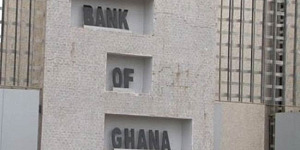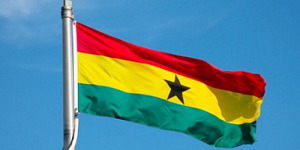Ghana's B3 rating and negative outlook reflect the sovereign's large gross financing needs, high debt burden and low debt affordability, Moody's Investors Service said in an annual report published this past week.
The report is available now on www.moodys.com. Moody's subscribers can access this report via the link provided at the end of this press release. The report is an update to the markets and does not constitute a rating action.
"Ghana's gross financing needs are expected to reach 20% of GDP over the forecast horizon and the country is facing tight domestic and external funding conditions," said Elisa Parisi-Capone, Vice President -- Senior Analyst and co-author of the report. "Ghana's credit profile is also exposed to lower-for-longer commodity prices which weigh on the balance of payments and fiscal revenues."
Moody's assesses Ghana's fiscal strength as "Very Low", reflecting the country's high debt burden and very low debt affordability resulting from high interest expenditures as a share of GDP and of revenues. The government's significant foreign currency debt share exposes public debt dynamics to currency volatility.
Ghana's year-end 2015 fiscal deficit of 6.7% of GDP in cash terms surpassed the budgeted 7.3% target and marked a significant improvement from the 9.4% deficit reported in 2014. The figures underscore Ghana's commitment to fiscal consolidation which Moody's expects to continue in the current election year.
Ghana's expanding oil and gas production will help to spur economic growth in the coming years. Moody's projects that real GDP growth will accelerate to 5.1% in 2016 and 6.5% in 2017. This compares to 3.9% in 2015.
Downward pressure on the rating could arise from delays to fiscal consolidation or renewed setbacks in resolving the country's power crisis or a further sustained decline in oil, gold and cocoa prices or production levels that would put further downward pressure on fiscal revenues and export receipts. Pressure would also stem from a sustained loss of capital or continued pressure on the balance of payments and international reserves.
A change in the outlook to stable could result from sustained fiscal consolidation that would stabilize and eventually reduce the debt burden over the medium term or an improved debt rollover risk profile domestically and externally. A bolstering of Ghana's foreign exchange reserves that would reduce the country's vulnerability to terms of trade shocks would also be positive.





















































